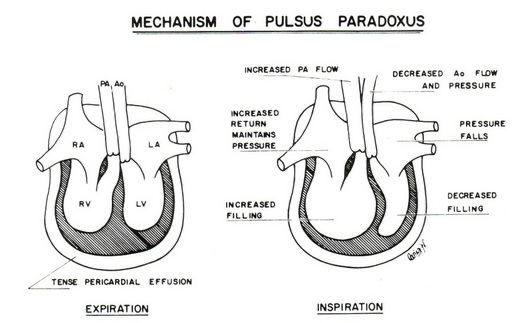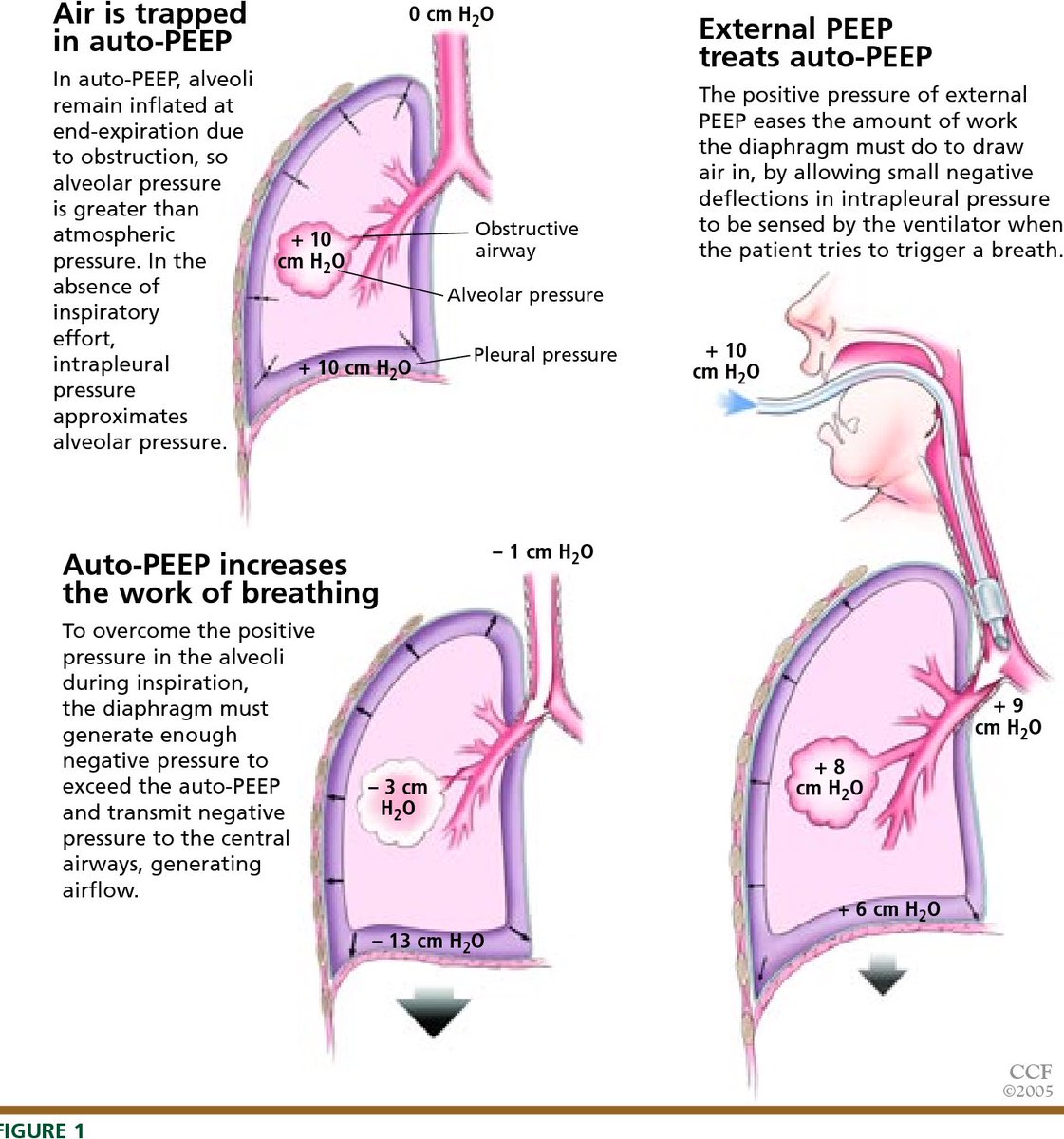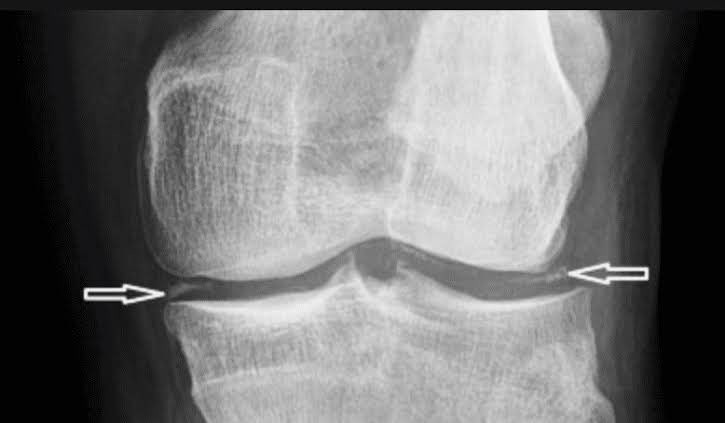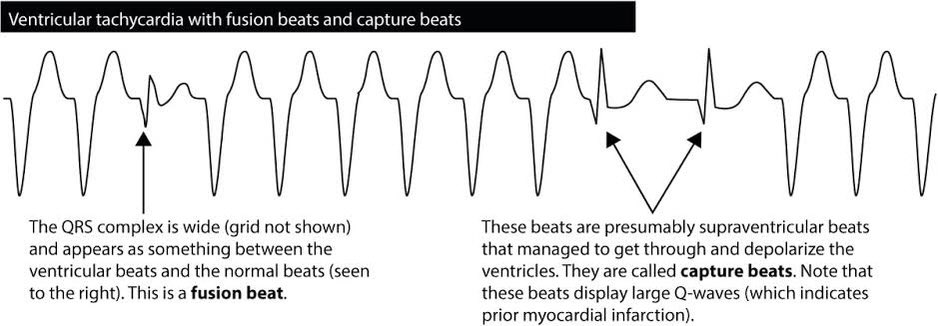What is meant my Pulsus Paradoxus ?
A one-stop pathophysiology thread you’d ever need 🧵
#MedTwitter #MedStudentTwitter #MedEd #FOAMed #CardioEd #USMLE #ICU #EMTwitter
A one-stop pathophysiology thread you’d ever need 🧵
#MedTwitter #MedStudentTwitter #MedEd #FOAMed #CardioEd #USMLE #ICU #EMTwitter

To understand Pulsus Paradoxus in detail,
It is essential to realise for a fact that, 1. Pleural pressure, 2. Abdominal pressure, 3. Heart chamber pressures & 4. Lung pressures, are all interconnected, interact & react among each other.
It is essential to realise for a fact that, 1. Pleural pressure, 2. Abdominal pressure, 3. Heart chamber pressures & 4. Lung pressures, are all interconnected, interact & react among each other.
As we inspire —> the diaphragm moves down, creating a more negative intra-pleural pressure & a more positive abdominal pressure —> this adds up to ⬆️ venous return to right atrium —> excess blood enters RV & ⬆️ right ventricular end diastolic pressure (RVED)
So logically, shouldn’t more blood be entering the pulmonary artery & in turn into the left heart system, increasing the SV, CO & SBP ? 🤔
What “Paradoxic Stuff” actually happens ?
What “Paradoxic Stuff” actually happens ?
To understand this, lets figure out something physiologic that happens between two ventricles through the septum & through the pulmonary vasculature, called — “Ventricular interdependence (VI)”
Two types of VI are described
1. Parallel
2. Series
👇🏻
Two types of VI are described
1. Parallel
2. Series
👇🏻
1. Parallel - During inspiration, the RVEDV ⬆️, because of low elasticity of pericardium & shifts the septum to the left and reduces left ventricular chamber size —> leading to a ⬇️ in LVEDV and LVSV. The opposite effect will occur during expiration, as more blood goes to the LV 



2. Series - As one inhales, the lungs expand and creates a pulling radial traction on the pulmonary vasculature & ⬆️ its vascular capacitance —> momentarily sequestering blood in the chest, and dropping blood flow to the left heart —> ⬇️ CO.
The opposite occurs during expiration
The opposite occurs during expiration

This was first documented by Adolph Kussmaul, who referred to the palpated pulse of affected patients as being of variable strength despite regular precordial activity.
Always remember that a drop in SBP during inspiration by less than < 10 mm Hg is NORMAL

Always remember that a drop in SBP during inspiration by less than < 10 mm Hg is NORMAL


But, things get out of pressure concordance, when this drop occurs greater than > 10 mm Hg. Thats when you know something is not “Physiologic” anymore about the complex thoracic pressure system
There are a number of reasons and aetiologies behind the occurrence of Pulsus Paradoxus, with a varying range of underlying pathophysiologies,
Most commonly occurring :
1. Cardiac Tamponade (Electrical alterans)
2. Constrictive pericarditis (Kussmaul sign)
3. COPD & Asthma
Most commonly occurring :
1. Cardiac Tamponade (Electrical alterans)
2. Constrictive pericarditis (Kussmaul sign)
3. COPD & Asthma

Mechanism 1
Cardiac tamponade : ⬆️ pericardial space pressure —> ⬆️ RVEDP & ⬇️ filling —> Bowing of RV into the LV —> decreased LV space —> ⬇️ CO —> ⬇️ SPB > 10 mm Hg
Cardiac tamponade : ⬆️ pericardial space pressure —> ⬆️ RVEDP & ⬇️ filling —> Bowing of RV into the LV —> decreased LV space —> ⬇️ CO —> ⬇️ SPB > 10 mm Hg
Mechanism 2
Asthma/COPD : ⬆️ negative intra-pleural pressure due to air trapping —> ⬆️ than normal pull/traction of pulmonary vessels than normal individuals —> ⬆️⬆️ pooling of blood
—> ⬇️ blood in LA/LV —> ⬇️ CO —> ⬇️ SBP > 10 mm Hg.
Asthma/COPD : ⬆️ negative intra-pleural pressure due to air trapping —> ⬆️ than normal pull/traction of pulmonary vessels than normal individuals —> ⬆️⬆️ pooling of blood
—> ⬇️ blood in LA/LV —> ⬇️ CO —> ⬇️ SBP > 10 mm Hg.
You may get the idea by now & can explore more in depth stuff about various pathologies in the references provided below.
Thanks for reading this thread & lets take a deep breath together to drop our SBP less than 10 mmHg, before we get to the next patient on wards !
Thanks for reading this thread & lets take a deep breath together to drop our SBP less than 10 mmHg, before we get to the next patient on wards !
References :
1. onlinelibrary.wiley.com/doi/full/10.11…
2. erj.ersjournals.com/content/42/6/1…
3. ncbi.nlm.nih.gov/books/NBK48229…
1. onlinelibrary.wiley.com/doi/full/10.11…
2. erj.ersjournals.com/content/42/6/1…
3. ncbi.nlm.nih.gov/books/NBK48229…
• • •
Missing some Tweet in this thread? You can try to
force a refresh



















